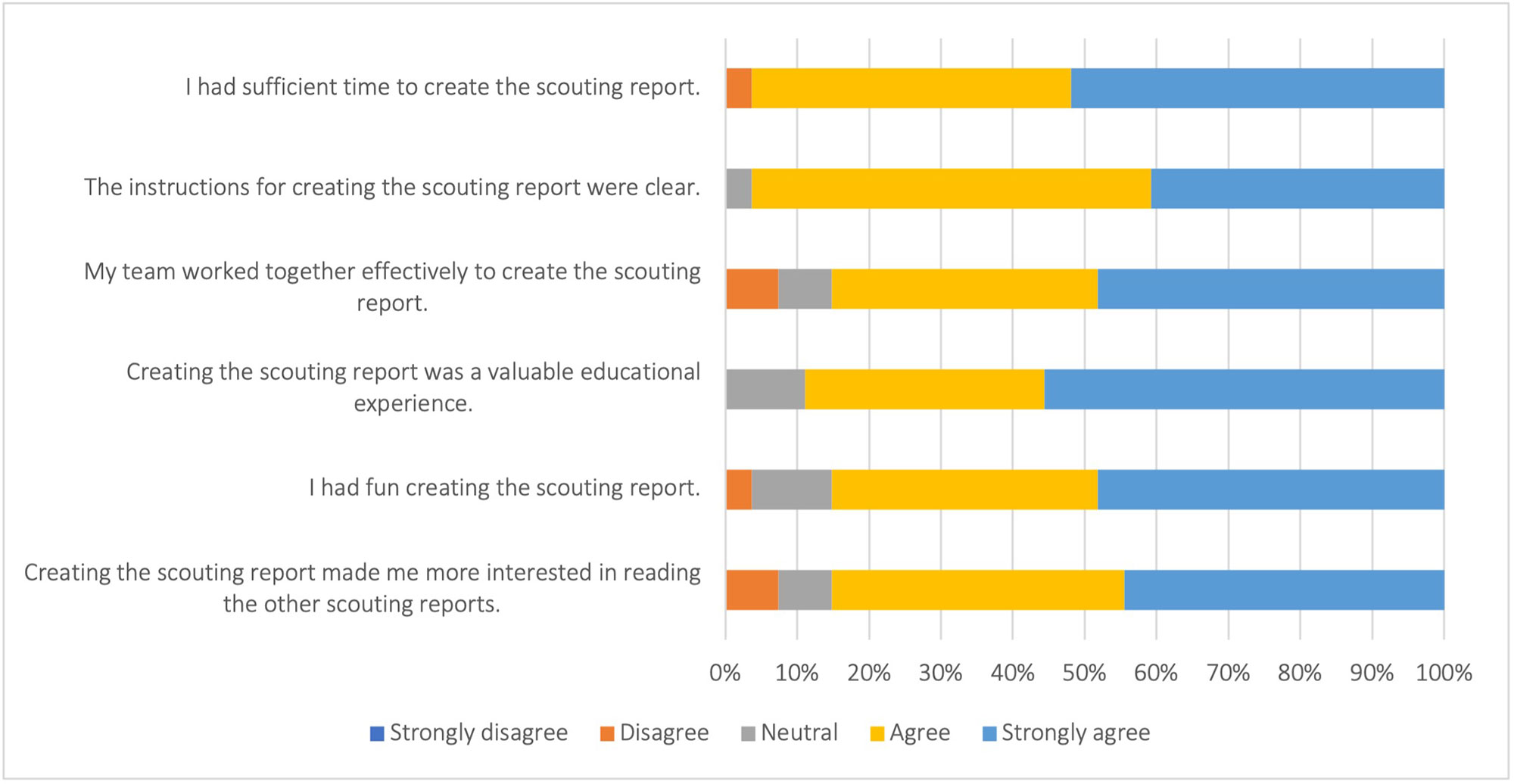Session Information
Session Type: Poster Session A
Session Time: 1:00PM-3:00PM
Background/Purpose: RheumMadness is an online social constructivist learning activity for the rheumatology community. Knowledge co-creation by learners is key to social constructivist learning. Thus, we guided the development of “scouting reports” (SR), created by RheumMadness participants, to teach others about key concepts in the tournament. In this project, we seek to understand the educational experience of SR creators in RheumMadness 2021 and 2022.
Methods: We invited rheumatology fellowship programs to create the SRs (one per program). To guide their efforts, we provided a blank SR template, an example SR, instructional videos, a SR “primer” (Figure 1), and feedback from the leadership team. We counted the number of fellows and attendings involved in SR creation (excluding leadership team). To understand the experience of SR creators, we analyzed responses on a survey sent after the 2021 and 2022 RheumMadness tournaments. The 2022 survey asked SR creators questions about their experience with SR creation. In addition, we analyzed SR creators’ self-reported engagement with the curricular elements of RheumMadness and their perceived educational experience as expressed in the three presences of the Community of Inquiry framework (cognitive, social, and teaching). After aggregating responses from 2021 and 2022, we used unpaired T-tests to compare responses from fellows involved in SR creation to fellows who participated in RheumMadness but did not create a SR. This analysis excluded attendings to avoid confounding from different training levels in the two groups.
Results: In total, SR contributors included 48 authors (44 fellows, 4 faculty) from 14 fellowship programs in 2021 and 61 authors (42 fellows, 19 faculty) from 13 fellowships in 2022, resulting in 32 total SRs. Response rates of SR creators on the survey was 29% (14/48) in 2021 and 44% (27/61) in 2022. Of the 2022 respondents, over 85% agreed or strongly agreed that creating a SR was fun, educational, and increased interest in reading other SRs (Figure 2). After aggregating responses from 2021 and 2022, fellows who created a SR (n = 29) and those who did not create a SR (n = 17) reported similar engagement with reviewing other SRs and the podcast. However, those who did not create a SR had higher engagement on social media (Table 1). Likewise, fellows who created a SR and those who did not create a SR had experienced similar levels of the cognitive and teaching presences, but those who did not create a SR reported higher levels of the social presence (Table 1).
Conclusion: In 2021 and 2022, RheumMadness engaged learners from different institutions in the creation of learning resources for other participants in the tournament, consistent with social constructivist theory. Participants found SR creation to be fun and educational. Our comparison of fellows’ educational experiences with RheumMadness reveals two distinct groups: (1) those who engaged with RheumMadness primarily within their own program through SR creation, and (2) those who did not create a SR but engaged with RheumMadness through social media. Regardless, both groups had a meaningful educational experience, as evidenced by high cognitive and teaching presences.
To cite this abstract in AMA style:
Garren A, Katz G, He L, Macklin M, Kellogg B, Bair C, Sparks m, Criscione-Schreiber L, leverenz d. Scouting Reports as a Social Constructivist Teaching Tool in RheumMadness [abstract]. Arthritis Rheumatol. 2022; 74 (suppl 9). https://acrabstracts.org/abstract/scouting-reports-as-a-social-constructivist-teaching-tool-in-rheummadness/. Accessed .« Back to ACR Convergence 2022
ACR Meeting Abstracts - https://acrabstracts.org/abstract/scouting-reports-as-a-social-constructivist-teaching-tool-in-rheummadness/



